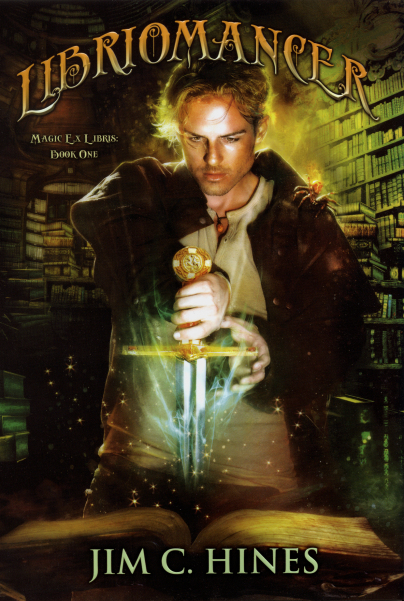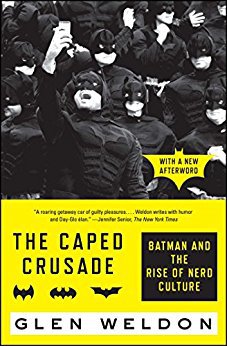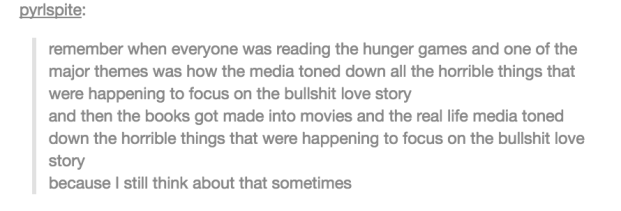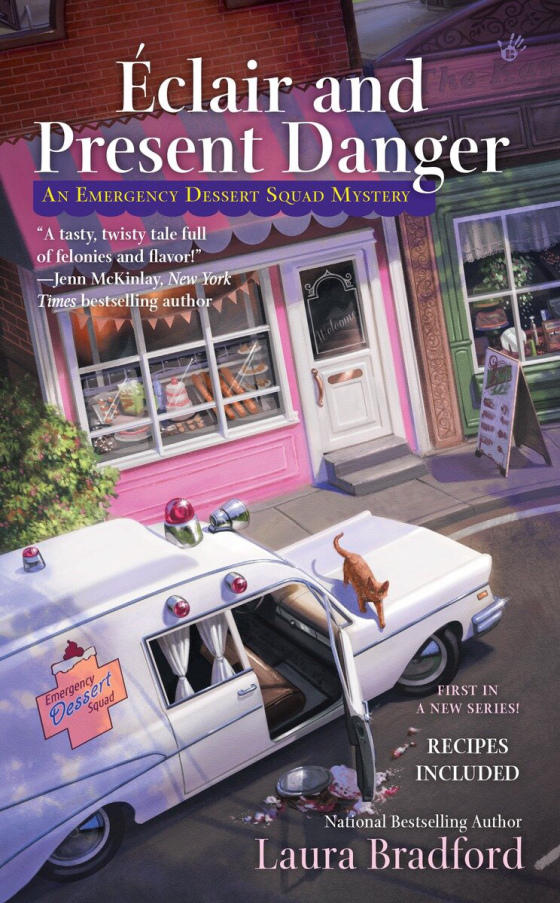
Magic ex Libris Book #1, DAW Books, 2012, 348 pgs.
Isaac’s been out of the game, for a while really. He’s still a libriomancer, a book mage, and still a member of the Porter hierarchy that governs them, but his ban from field work leaves him spending most of his days working as a librarian and surreptitiously tagging books for other Porters to use. Until the day a group of vampires step into his rural, Midwestern library, obviously attempting to get at him and spouting off about some coming war. And when he tries to take this to his higher-ups in the organization, he finds out that half of them are dead and the other half don’t know what’s going on either. Instead of explaining, they give him emergency leave to go back to the field and tell him to figure it out. Unfortunately there’s more going on here than just angry vampires, and the things Isaac uncovers lead straight to the heart of the Porters themselves: what they exist for, and what they’re hiding.
It’s always amazing to me, the ways in which what’s going on with you personally can affect your enjoyment of a book. Our mental states, experiences, and the things happening around us have a far greater weight on our media intake than I think we often give them credit for.
Obviously rereading a book as an adult and suddenly loving or hating it when you didn’t before is a known phenomenon, but even within a couple of years, with no major life changes, I’ve had vastly different reactions to pieces on reread. And I can’t help but feel that has more to do with my strictly internal mental state than with any new things that have happened to me.
All of this is basically being a long way to say I had a hell of a lot less fun with Libriomancer than I typically do with Hines’ work, and I’m not sure if that’s because of the book or because of me.
If I’m being honest with myself, it’s probably the latter. This really, really should have been fun; it has everything about Hines’ work that usually makes me give it that description, and, on multiple levels, it’s very much a story built for people who love books. Like a lot of his other series, it’s sort of pulpy and tropey, in a way that’s as much loving as it is mocking. If the Princess series was a take on Disney fairytales and the Jig the Goblin series a riff on generic high fantasy, this was almost a play on the summer blockbuster formula. We literally start here with a disgraced, loose-cannon magic cop having to step back into the field to redeem himself.
And like the genre it’s playing with, and again, as is typical of Hines, there may be dark elements present, but the plot never gets bogged down in them. It remains fast-paced and hopeful in tone, creating a sort of breezy feel that should have been fun and easy to read.
Also, like a lot of Hines’ work, it’s sort of nerdy. I mean, it’s about a secret group of magic librarians who use the world’s collective love of stories and suspension of disbelief to pull every cool thing fiction has ever offered to the world out of books to use. What genre nerd wouldn’t love that? There are constant little references to everything from laser guns to magic swords, all pulled from classic series and all of which our hero Isaac is willing to geek out over as much as the audience.
In a world peopled partially by every popular type of vampire you can possibly think of, because sometimes magical diseases can also be pulled out of the books. Our opening scene has Isaac fighting a group of “sparklers.”
And those are just the things I enjoy specifically about Hines’ books; this also involves a lot of things that I enjoy in novels in general. There’s no easily established good and evil here. Almost everyone is a little morally shady and playing according to their own agenda, and even the main villain is very much a product of the same system our hero is. Speaking of Isaac, he’s far from a perfect protagonist; he’s a little too reckless and headstrong, but as much as that leaves him running straight into stupid situations, he’s also clever enough to usually pull it off. All of the characters are well rounded and unique; none of them ever just fade into the background of the work.
The plot keeps itself moving too. We barely know what’s happening at the beginning, and never fully understand until the end, so there’s more than enough suspense to keep things going. The fact that most of this is action packed (like I said, summer blockbuster) keeps you barreling from scene to scene, too. And there’s enough of a personal element, enough of a character journey for the leads at least, to keep it from just feeling like stupid schlock.
So all of this sounds awesome, right?
I had such a hard time getting through this book, though. It took me about two months, which is ridiculously long for me. I kept starting, reading five pages, and then drifting away again, and even after I’d finished it, everything still felt unsatisfying. For a work that seems tailor-made for me, from an author I know I like, this is incredibly odd.
So, two theories.
One is, this is somewhat different from Hines’ usual work. It’s not that his books have been all happy fluff, far from it, but usually the dark elements there are more plotty than philosophical. And a lot of the passages here do get very metaphorical and metatextual. His prose in this book is far more lyrical than his typical, plain-spoken style, things are left far more up to interpretation than in his other pieces, and he’s attempting to dig into some fairly meaty ideas about how the love of narrative shapes people, in both good ways and bad.
There are questions in Libriomancer about everything from how group dynamics can sometimes leave people to fall through the cracks, to how a widely read novel can create a mass media experience that is both the same and different for everyone who participates in it, to where the lines of personal autonomy begin and end for a character pulled out into the real world. The fact that there’s a lot going on here is objectively good, but it is a departure from his norm. I can very much see having liked his previous books while still having trouble with this one.
Or there’s the other theory, which is that Life was Happening (and the capitals are justified there) while I was reading this. I was very busy, leaving gaps of up to a week between putting the novel down one night and picking it up again, and I can’t say I was in a very good mood during any of it. I know very well that I forced my way through this book because I was trying to not lose too much time, rather than because I felt like reading. And there’s every chance that affected my judgement. Like I said, if I’m honest with myself, I think that’s probably it.
So yes, this is a little more description than review. I do have the second in the series, Codex Born, sitting on my shelf, and I am planning on reading it soon. If it leaves me cold as well I’ll let you all know. Until then, there’s enough here that I should have really been into, and circumstances were suspicious enough, that I can’t just write this off.
Advertisements Share this:




